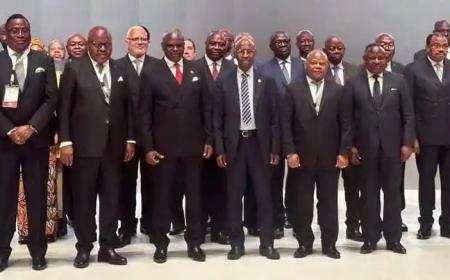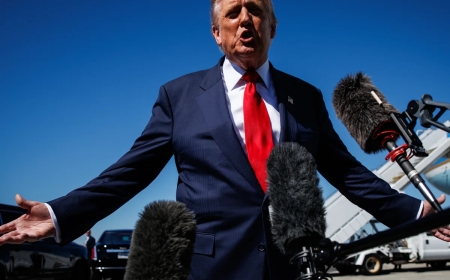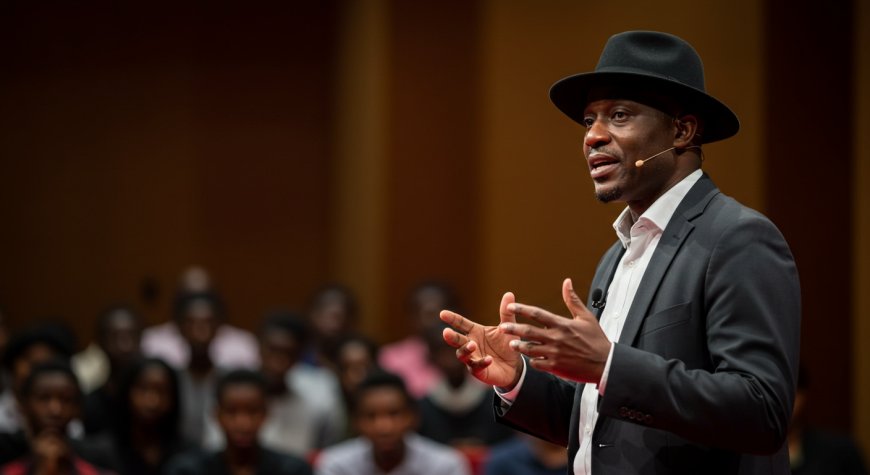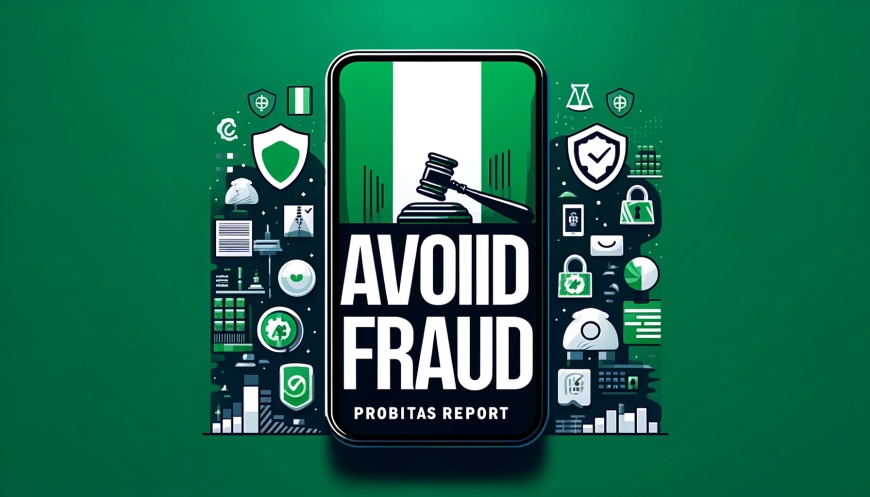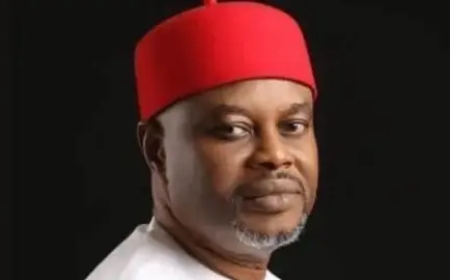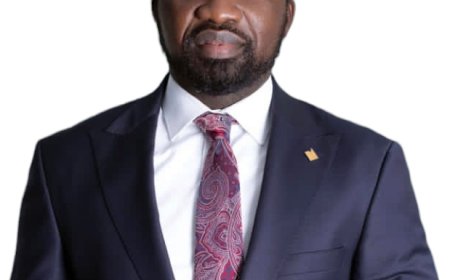Betrayed Bonds: A Tale of Friendship, Deception, and Justice
A compelling narrative of friendship turned sour, Betrayed Bonds explores how trust can be exploited for personal gain. Follow the gripping tale of Hauwa and her deceitful friends as financial fraud, manipulation, and betrayal unravel their circle—leading to justice through the EFCC and police intervention. A powerful lesson on integrity, accountability, and the true cost of dishonesty.

In the bustling city of Lagos, where dreams are as vast as the Atlantic Ocean that kisses its shores, five women formed an unbreakable bond—or so they thought. Bimpe, Itohan, Hauwa, Uzezi, and Chioma were not just friends; they were confidantes, cheerleaders, and collaborators in the pursuit of success. Each woman brought something unique to their circle: Bimpe’s sharp business acumen, Itohan’s charm and connections, Hauwa’s wealth stemming from a prominent political dynasty, Uzezi’s creative flair, and Chioma’s unwavering loyalty. Together, they navigated life’s challenges, celebrated victories, and supported one another through struggles.
Their friendship seemed like the perfect blend of ambition, camaraderie, and trust. They shared meals at trendy restaurants, attended each other’s family gatherings, and even launched small ventures together. However, beneath the surface of laughter and promises lay cracks waiting to widen. It all began innocently enough—with a loan request from Bimpe to Hauwa.
Hauwa, known for her generosity and privileged upbringing, didn’t think twice when Bimpe approached her with a proposal. “I need ₦100 million to expand my oil and gas company,” Bimpe had said earnestly. “It’s a solid investment, and I’ll pay you back within two months and would pay you interest on the investment monthly until the principal is fully repaid.” Trusting implicitly, Hauwa agreed without demanding formal documentation or collateral. After all, these were her friends—people she believed would never betray her kindness and they also attend the same place of worship, Believers Love Life.
What followed was the unraveling of everything they thought they stood for. Bimpe’s initial inability to repay the loan spiraled into a web of deceit, manipulation, and betrayal. As greed took root, others in the group succumbed to temptation, exploiting Hauwa’s affluence whilst justifying their actions under the guise of fairness and so called religious sentimentality. Over time, what started as a simple debt turned into a tangled mess involving spouses, pleas for forgiveness, and ultimately, intervention by law enforcement agencies like the EFCC and police.
This story is more than just a cautionary tale about financial dealings gone wrong. It serves as a mirror reflecting the fragility of human relationships when tested by money, power, and misplaced loyalties. Through the journey of Bimpe, Itohan, Hauwa, Uzezi, and Chioma, we explore themes of trust, accountability, and redemption—and uncover lessons that resonate far beyond their personal drama.
MORE NEWS: CELEBRATING THE BIRTHDAY OF THE KING OF DEBT RECOVERY IN NIGERIA

The Betrayal Begins: Bimpe's Calculated Deception
Bimpe’s decision to borrow ₦100 million from Hauwa wasn’t impulsive—it was calculated. She knew Hauwa came from a wealthy family, accustomed to lending large sums without much fuss. What Bimpe didn’t anticipate, however, was how easily she could rationalize delaying repayment once the funds were secured. Her oil and gas expansion plans hit unexpected snags— she received the petroleum products supplies and continued trading without recourse to initial agreement to return the borrowed funds back after 60-days—but instead of being transparent, Bimpe chose silence.
At first, Hauwa brushed off missed deadlines with understanding. “Business can be unpredictable,” she told herself, assuming Bimpe was doing her best. But as months stretched into years, unease crept in. When confronted, Bimpe offered excuses wrapped in apologies, promising to settle the debt soon. Yet no payments materialized. Meanwhile, whispers reached Hauwa’s ears: Bimpe had used part of the money to finance a lavish vacation and upgrade her car, sending children to Canada. The betrayal stung deeply—not only because of the lost money but because it shattered the foundation of trust between them.
For Hauwa, this wasn’t merely about finances; it was personal. Growing up in a politically influential household, she had always been taught the importance of integrity in business and honor. To see someone she considered a sister exploit her goodwill left her questioning everything she believed about friendship. Bimpe’s actions planted seeds of doubt that would later bloom into full-blown mistrust amongst the group. For now, though, Hauwa tried to suppress her hurt, hoping the situation might resolve itself. Little did she know, things were about to get worse. Huawa reported to the church council at Believers’ Love Life and because Bimpe is a Deaconess in that church and gives to the charity donation of the church’s partner’s club, the church took side with Bimpe and Huawa was left in pain and she later left the church for Bimpe and their money drunk church.
- The Need For Private Investigators To Review AMCON'S Operations Over The Last Decade
- How Non Payment Of Your Debt Affect Your Integrity
- Strengthening Fight Against Financial Fraud in Nigeria
- Understanding The Dangers of Financial Fraud And How To Stay Clean
The Domino Effect: Itohan's Justification and Exploitation
As news of Bimpe’s unpaid loan spread subtly within their tight-knit circle, Itohan found herself grappling with conflicting emotions. On one hand, she felt sympathy for Hauwa, who had been taken advantage of by someone they both trusted. On the other hand, envy simmered beneath the surface. Hauwa’s wealth, inherited from her family’s political dynasty, seemed almost effortless compared to the daily grind Itohan endured to climb the social ladder. This disparity gnawed at her, fueling resentment disguised as justification.
“It’s not fair,” Itohan muttered to herself late one evening, scrolling through photos of Hauwa’s luxurious lifestyle on social media. “She has so much, and yet she acts like losing a few million naira is nothing. Meanwhile, some of us are struggling just to make ends meet.” That thought lingered, growing louder until it drowned out any lingering guilt. If Bimpe could borrow and delay repayment, why shouldn’t she? It wasn’t theft—it was simply leveling the playing field.
With newfound resolve, Itohan approached Hauwa under the pretense of discussing a joint business venture. “I’ve got this amazing opportunity,” she began, painting a picture of guaranteed returns. “But I need some capital to get it off the ground. Just ₦250 million — for six months, tops.” Hauwa hesitated, memories of Bimpe’s broken promises still fresh in her mind. Yet, unable to say no outright, she reluctantly agreed and she went to take a loan from the bank using her father’s property to access the loan for Itohan, convincing herself that Itohan wouldn’t repeat the same mistakes.
But Itohan’s intentions were never pure. From the start, she viewed the loan as hers to keep, rationalizing it as compensation for years of feeling overshadowed by Hauwa’s privilege. Unlike Bimpe, who initially intended to repay but failed due to subtlety and dubious mentality, Itohan made no effort to honor her commitment. Instead, she used the funds to fund extravagant purchases—an apartment in Los Angeles, USA, a weekend getaway—all whilst deflecting inquiries about repayment with vague assurances.
The ripple effect of Itohan’s actions further fractured the group, especially Hauwa. Uzezi and Chioma, aware of the mounting tension, began tiptoeing around conversations involving money. Trust, once the glue binding them together, now felt like a fragile thread ready to snap. And as Hauwa watched her friends exploit her kindness, bitterness replaced the warmth she once felt toward them. The stage was set for a dramatic confrontation—one that would expose the true nature of their friendships.
Manipulation and Collusion: Exploiting Friendships and Family Ties
The betrayal widened its reach as Bimpe and Itohan’s schemes grew bolder, pulling others into their orbit of deceit. Uzezi, caught between loyalty to Hauwa and fear of alienating the rest of the group, became an unwitting pawn in their manipulative game. Initially reluctant to involve herself in their financial dealings, Uzezi was gradually swayed by subtle coercion. “You’re part of this too, aren’t you?” Bimpe would insinuate during casual conversations. “If Hauwa forgives us, maybe she’ll forgive you someday for those little favors you owe her.” These veiled threats planted seeds of paranoia in Uzezi’s mind, making her question whether remaining silent equated to complicity.
Meanwhile, Chioma faced pressure from a different angle. As the most steadfast ally of Hauwa, she found herself targeted by Itohan, who sought to undermine her influence. “Chioma’s always been jealous of how close you and Hauwa are,” Itohan whispered to Bimpe during one of their clandestine meetings. “Maybe it’s time to remind her who really holds the cards.” Their strategy worked—Chioma began distancing herself, torn between defending Hauwa and preserving what remained of their crumbling friendship.
One of the most calculated acts of manipulation involved Hauwa’s husband, Ahmed. Seeing an opportunity in his concern for his wife’s growing disappointment, Bimpe devised a plan under the pretense of making peace. She arranged a meeting, appearing remorseful as she poured out her supposed hardships over coffee, painting herself as a victim of unfortunate circumstances. Touched by her emotional display, Ahmed unknowingly became her advocate, appealing to Hauwa on her behalf. “Everyone deserves a second chance,” he urged. “We are all Christians, and there’s no need to air our dirty laundry in public.” These words, carefully planted through years of emotional maneuvering, were part of the larger scheme to pressure Hauwa into letting go of her grievances to allow for debt forgiveness..
Each layer of deception deepened the rift amongst the women, eroding whatever remnants of trust lingered. The group dynamic devolved into a toxic mix of guilt-tripping, gaslighting, and scapegoating. What began as isolated incidents of fraud metastasized into a culture of entitlement and exploitation, leaving no room for genuine connection or accountability.

Legal Intervention: The EFCC and Police Step In
Years of simmering tensions finally boiled over when Hauwa, exhausted by repeated betrayals and empty promises, decided to take legal action by enlisting the services of a world class renowned Debt Recovery Agency to carry out all legal means to recover the debts since 2008. With evidence meticulously gathered—including bank statements, emails, text messages, and witness testimonies—she filed complaints against Bimpe, Itohan, and indirectly implicated Uzezi and Chioma for their roles in enabling the deception. The case quickly escalated, drawing the attention of Nigeria’s Economic and Financial Crimes Commission (EFCC) and local law enforcement agencies.
The EFCC, tasked with combating financial crimes, launched a thorough investigation into the matter. Investigators subpoenaed financial records, interrogated key players, and reconstructed the timeline of events leading up to the alleged fraud. Meanwhile, the police conducted raids on properties linked to the accused, seizing assets suspected to have been purchased with illicit funds. The media caught wind of the scandal, amplifying public scrutiny and adding pressure on authorities to deliver justice swiftly.
For Bimpe and Itohan, the consequences were swift and severe. Both faced charges of embezzlement, issuance of dishonored cheques, conversion of sales proceeds, diversion of funds, breach of trust, and conspiracy to defraud. Uzezi and Chioma, though less culpable, were summoned for questioning regarding their knowledge of the fraudulent activities. Their involvement, albeit indirect, painted them as accessories to the scheme. Court proceedings revealed shocking details: luxury vacations funded by stolen money, falsified documents designed to obscure transactions, and elaborate stories crafted to evade accountability.
Public reaction was mixed. Some sympathized with Hauwa, viewing her as a victim of predatory behavior. Others criticized her naivety, arguing that she should have exercised greater caution before extending loans. Regardless of opinions, the high-profile nature of the case sent shockwaves through Lagos’ elite circles, serving as a stark reminder of the perils of unchecked trust and greed.
Lessons Learned: Trust, Accountability, and Redemption
The saga of Bimpe, Itohan, Hauwa, Uzezi, and Chioma serves as a sobering lesson on the fragility of trust and the corrosive effects of unchecked greed. At its core, this story underscores the importance of setting clear boundaries in financial matters, especially among friends. Had Hauwa insisted on formal agreements or collateral before extending loans, the entire ordeal might have been avoided. Transparent communication and documented expectations are essential safeguards against misunderstandings and exploitation.
Moreover, the case highlights the dangers of rationalizing unethical behavior. Both Bimpe and Itohan justified their actions by downplaying the severity of their deeds or shifting blame onto perceived injustices. Such self-deception not only damaged their integrity but also eroded the fabric of their friendships. Readers must recognize that no amount of envy or perceived inequity justifies violating another person’s trust.
Furthermore, the story underscores the profound significance of accountability and the path to true redemption. While legal consequences may serve as a means to enforce justice, they alone do not restore the trust that has been broken. True healing begins when an individual takes full ownership of their actions, acknowledges the harm they have caused, and makes a genuine effort to make amends—not out of coercion, but from a place of sincere remorse and a commitment to doing what is right.
For those who have been betrayed, the weight of deception and disappointment can make forgiveness seem unattainable. The wounds inflicted by dishonesty and exploitation often run deep, leaving scars that do not fade easily. However, clinging to resentment only prolongs the cycle of pain, giving past betrayals continued power over the present. Forgiveness, though difficult, is not necessarily about excusing the wrongdoing but about releasing oneself from the burden of bitterness.
Ultimately, even if a debt appears to be forgiven due to a debtor’s current inability to repay, it does not absolve them of the moral and financial responsibility to make full restitution. True integrity demands that, regardless of temporary leniency, the debtor must make every effort to settle what is owed. No amount of self-righteous rhetoric from well-wishers or third-party interventions can erase the fundamental truth—debt remains debt, and repayment is a matter of both principle and accountability. While sympathy and external pressures may attempt to rewrite the narrative, the original intent of the debtor cannot be erased, especially when deception was at the core of the borrowing. Manipulation, however eloquently disguised as justification, does not change the reality of dishonesty. True justice is not in evading consequences but in taking full responsibility and making things right, not just in words, but in action.
Author:
Agent Ekwy Ukpabio
Email: agentekwy@kreenoplus.com // Website: www.kreenoplus.com
Kindly share this story:
Contact: report@probitasreport.com
Stay informed and ahead of the curve! Follow The ProbitasReport Online News Report on WhatsApp for real-time updates, breaking news, and exclusive content especially when it comes to integrity in business and financial fraud reporting. Don't miss any headline – and follow ProbitasReport on social media platforms @probitasreport
[©2025 ProbitasReport - All Rights Reserved. Reproduction or redistribution requires explicit permission.]
What's Your Reaction?





































